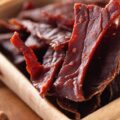Introduction
Staying properly hydrated is crucial for athletes to perform at their best and avoid potentially dangerous heat illnesses. The American College of Sports Medicine (ACSM) recently updated their hydration guidelines to provide clearer recommendations on fluid and electrolyte intake before, during and after exercise.
Background on Hydration Needs
During intense exercise, the body loses water and electrolytes, like sodium and potassium, through sweat. If these losses are not adequately replaced, dehydration can occur. Symptoms like headache, muscle cramps, dizziness and fatigue start to appear when an athlete loses as little as 2% of their body weight in fluid. Performance also suffers – even mild dehydration can decrease endurance, strength and mental focus.
For these reasons, sports medicine organizations have issued evidence-based hydration guidelines over the years. The ACSM first created hydration recommendations for athletes in 1996. As more research emerged on the nuances of fluid replacement, an update was needed to provide clearer advice to athletes.
Key Aspects of the Updated Guidelines
The ACSM assembled a panel of experts in exercise physiology, nutrition science and sports medicine to perform a thorough literature review and update the hydration guidelines. Several key updates aim to fine-tune fluid balance before, during and after athletic events or training sessions:
- More individualized fluid recommendations based on sweat rate, exercise duration and intensity, environment, gender, age, fitness level, etc.
- Emphasis on customized sodium intake depending on sweat sodium concentrations and exercise duration to optimize performance and prevent hyponatremia.
- Explanation of new evidence on the potential drawbacks of overhydration.
Tips for Proper Hydration
Here are some practical tips athletes of all levels can follow, based on the updated ACSM hydration recommendations:
- Weigh yourself before and after workouts to gauge fluid losses and determine your personalized sweat rate.
- Drink about 5-10 mL per kg body weight of fluids 4 hours before exercise to promote adequate hydration and allow time for excretion of excess water.
- During intense prolonged exercise lasting over an hour, aim for intakes of 40-80 mL per kg body weight to replace sweat losses. For workouts under an hour, water is adequate for most people.
- Include sodium from sports drinks or salt tablets for very prolonged or intense events to retain fluids and prevent hyponatremia.
- Within 2 hours after exercise, drink enough to replace at least 100-150% of sweat losses. Weighing yourself helps determine volume.
FAQ
How much fluid should an athlete drink before exercise?
Athletes should drink about 5-10 mL per kg of body weight of fluid in the 4 hours leading up to exercise. This helps ensure adequate hydration prior to beginning a workout or competition.
What is the optimal rate of fluid intake during exercise?
For intense workouts lasting over an hour, the ACSM recommends drinking 40-80 mL per kg body weight per hour. For lighter or shorter duration exercise, plain water is adequate to replace sweat losses for most healthy people.
When are sports drinks with electrolytes beneficial?
For endurance events lasting over an hour, the additional carbohydrates and electrolytes in sports drinks can enhance performance. They also help replace sodium losses in athletes who are heavy or salty sweaters.
What are the risks of drinking too much fluid while exercising?
Overhydration or “water intoxication” during prolonged exercise can dangerously dilute blood sodium levels leading to a condition called hyponatremia. Athletes should not exceed the recommended fluid intakes based on body weight and sweat losses.
How soon after exercise should an athlete rehydrate?
The goal is to replace 100-150% of sweat losses within 2 hours post-exercise, so weighing yourself quickly allows tailoring of fluid volume needs. Rehydrating sooner rather than later best restores fluid balance after a tough workout.
The Bottom Line
Maintaining optimal hydration before, during and after training sessions and events gives athletes a performance edge and helps prevent dangerous heat-related illnesses. Following the ACSM’s updated hydration advice allows customizing fluid and sodium needs to each athlete’s individual characteristics and sport demands.









